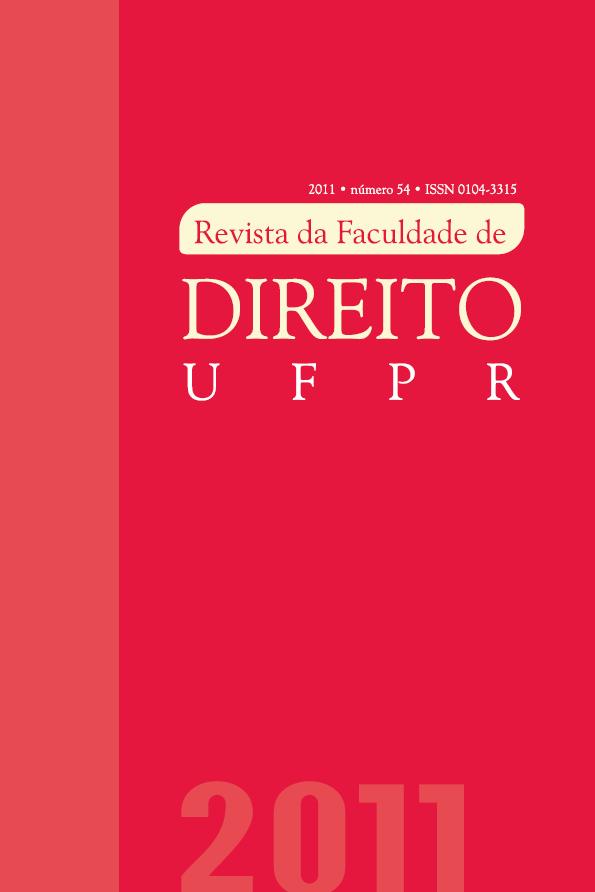BIOÉTICA AMBIENTAL: PENSANDO UMA NOVA ÉTICA PARA AS RELAÇÕES ENTRE O HOMEM E A NATUREZA
DOI:
https://doi.org/10.5380/rfdufpr.v54i0.30733Keywords:
Bioética, Paradigma antropocêntrico, Princípio de responsabilidade, Contrato naturalAbstract
O presente texto tem por objetivo analisar a mudança do paradigma ético dominante na Antiguidade para um novo paradigma contemporâneo. O paradigma da Antiguidade trazia a imagem de um ser humano diminuto em face da Natureza, desbravador em seus domínios, mas sem alterar o equilíbrio do sistema. O desenvolvimento da técnica permitiu ao homem modificar seu agir, alterando o sistema funcional do ambiente, de tal forma que seus atos agora produzem consequências antes inimagináveis, desestruturando a organização harmoniosa da Natureza. Dessa forma, é necessário repensar um novo princípio de responsabilidade, no qual o homem assume os compromissos com o meio ambiente, enxergando-o como detentor de direitos que devem ser respeitados para garantir a continuidade da existência humana. Para isso, mostra-se necessária a criação de um novo compromisso, um contato natural, de tal forma que a Natureza passe a atuar como sujeito e não como simples hospedeiro das ingerências humanas.
Downloads
How to Cite
Issue
Section
License
Authors who publish in the Journal agree to the following terms:
– Authors retain copyright and grant the Journal the right of first publication, with the work licensed under the Attribution-NonCommercial-ShareAlike 4.0 International licence, allowing the work to be shared as long as proper credit is given to the authors and the initial publication in the Journal is acknowledged;
– Reusers must provide appropriate credit, include a link to the license, and indicate if changes were made, but not in any way that suggests the licensor endorses the reuser or their use;
– Reusers may not apply additional restrictions, legal terms, or technological measures that legally restrict others from doing anything the license permits;
– Reusers must attribute credit to the creator and allow others to distribute, remix, adapt, and build upon the material in any medium or format, exclusively for noncommercial purposes and under the same terms, in compliance with Brazilian Law No. 9,610 of February 19, 1998, and other applicable regulations.



